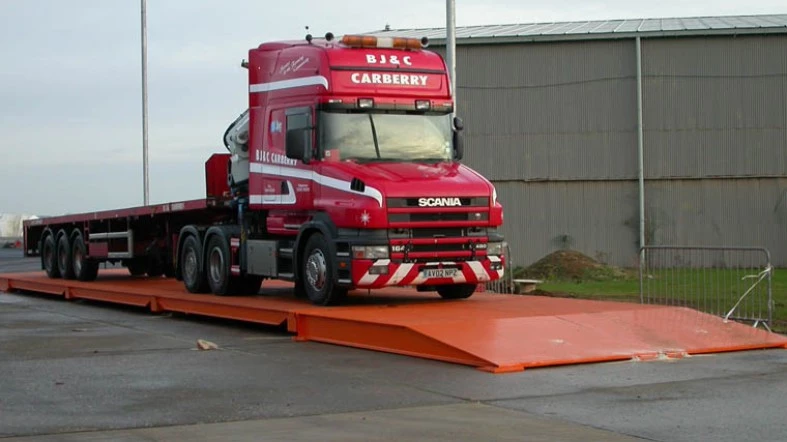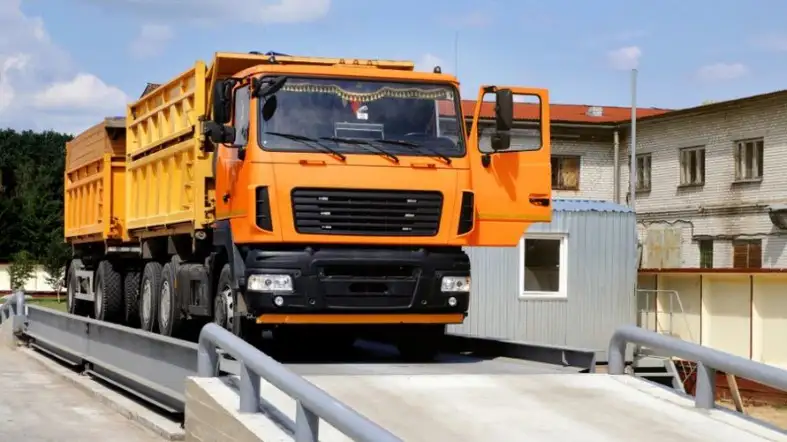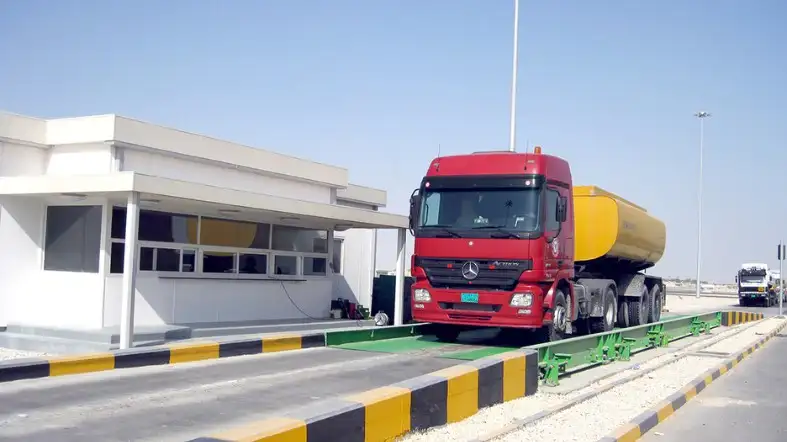Welcome to our blog about the rules and regulations surrounding rental trucks and weigh stations!
If you’re a driver of a rental truck, or if you’re considering renting a truck for a move or transportation needs, it’s important to understand whether or not you’re required to stop at weigh stations.
In this blog, we’ll go over the laws and guidelines for rental truck drivers when it comes to weighing stations, as well as provide some tips for navigating this process smoothly.
Do Rental Trucks Have To Stop At Weigh Stations?
If you are driving a rental truck for a personal move, you most likely won’t have to stop at a weigh station because it is not considered a commercial move.

Weigh station requirements typically apply to commercial vehicles, which are used for business purposes and exceed certain weight limits.
It’s always a good idea to check the laws and regulations in the state(s) where you’ll be driving to make sure you’re following all requirements.
Weigh Station Requirements for Commercial Vehicles

Weigh Station Requirements for Commercial Vehicles:
Federal and state regulations:
Commercial vehicles are required to comply with both federal and state regulations for weight and size restrictions.
Federal regulations limit commercial vehicles to a maximum weight of 80,000 pounds, while individual states may have their own weight and size restrictions.
Trucks, buses, and tractor-trailers:
Weigh station requirements apply to a wide range of commercial vehicles, including trucks, buses, and tractor-trailers.
Purpose of weigh stations:
Weigh stations exist to ensure that commercial vehicles are within the weight and size limits established by federal and state regulations.
Weighing commercial vehicles helps to maintain road safety and prevent damage to infrastructure by ensuring that trucks are not overloaded.
Importance of compliance:
Compliance with weigh station requirements is essential for commercial drivers to avoid penalties, including fines, impounding of the vehicle, and suspension of the driver’s license.
It is also crucial for maintaining safety on the roads and preventing accidents caused by overloaded or oversized vehicles.
Weigh Station Requirements for Rental Trucks
Rental trucks are a popular option for transporting goods, equipment, and other items.
Whether they are subject to weigh station requirements depends on their weight and intended use.
Weight requirements:
If a rental truck weighs over 10,000 pounds, it is considered a commercial vehicle and must comply with weigh station requirements.
This is because the weight of the vehicle can have an impact on road safety and infrastructure.
For instance, an overweight truck can cause damage to roads, bridges, and other structures, which can lead to safety hazards for other drivers.
Personal use exemption:
Rental trucks used for personal purposes, such as moving trucks, are exempt from weigh station requirements.
This means that if the truck is being used to transport personal belongings, furniture, or other household items, it does not need to stop at a weigh station.
It is important to note that if the truck is being used for commercial purposes, even if it is rented by an individual, it may be subject to weigh station requirements.
Compliance:
If a rental truck meets the weight requirement and is being used for commercial purposes, the driver must comply with weigh station requirements.
This means that they must stop at weigh stations along their route and follow any instructions from the weigh station personnel.

When Rental Trucks Must Stop
Factors that determine when rental trucks must stop:
Weight of the Truck: Rental trucks with a gross weight of over 10,000 pounds are required to stop at weigh stations.
Cargo: If the rental truck is carrying certain types of hazardous or oversized cargo, it may be required to stop at weigh stations.
State Regulations: The specific regulations for each state may vary, so it’s important to research the requirements for the state(s) where the truck will be driven.
Examples of when rental trucks must stop at weigh stations:
- The rental truck is carrying hazardous materials that require special handling and identification.
- The rental truck is carrying an oversized load that requires a special permit to transport.
- The rental truck is traveling through a state that requires all commercial vehicles over a certain weight to stop at weigh stations.
Exceptions for rental trucks:
- Personal Use: Rental trucks that are being used for personal purposes, such as moving household items, may be exempt from weigh station requirements.
- Local Travel: Some states exempt rental trucks from weigh station requirements if they are only traveling within the state and not crossing state lines.
- Size and Weight: In some cases, rental trucks that do not exceed a certain size and weight limit may be exempt from weigh station requirements.
FAQs on Do Rental Trucks Have To Stop At Weigh Stations
What Happens If A Rental Truck Doesn’t Stop At A Weigh Station?
If a rental truck fails to stop at a weigh station, the driver may be subject to fines and penalties.
In some cases, the truck may be impounded until the proper paperwork is filed and any fines are paid.
Can Rental Trucks Bypass Weigh Stations If They Are Not Carrying Hazardous Materials Or Are Under The Weight Limit?
It depends on the state and local laws.
Some states allow trucks to bypass weigh stations if they are not carrying hazardous materials or are under the weight limit, while others require all trucks to stop at weigh stations regardless of the type of cargo being carried.
It is important for drivers to check the laws in the states they will be traveling through before hitting the road.
Can Rental Truck Drivers Get Pulled Over For Not Stopping At A Weigh Station?
Yes, rental truck drivers can be pulled over by law enforcement if they fail to stop at a weigh station.
It is important for drivers to be aware of the laws in the states they are driving through and to follow all traffic laws, including stopping at weigh stations as required.
Is It The Responsibility Of The Rental Truck Company Or The Driver To Ensure That The Truck Stops At Weigh Stations?
It is ultimately the responsibility of the driver to follow all traffic laws, including stopping at weigh stations as required.
It is also the responsibility of the rental truck company to provide drivers with information about the laws in the states they will be driving through and to ensure that their trucks are properly equipped and maintained for the journey.
conclusion
Rental trucks may be required to stop at weigh stations depending on their weight, cargo, and state regulations.
It’s important to research the specific requirements for the state(s) where the truck will be driven to avoid fines and penalties.
Complying with weigh station regulations helps to ensure the safety of the roadways and protect the environment.
